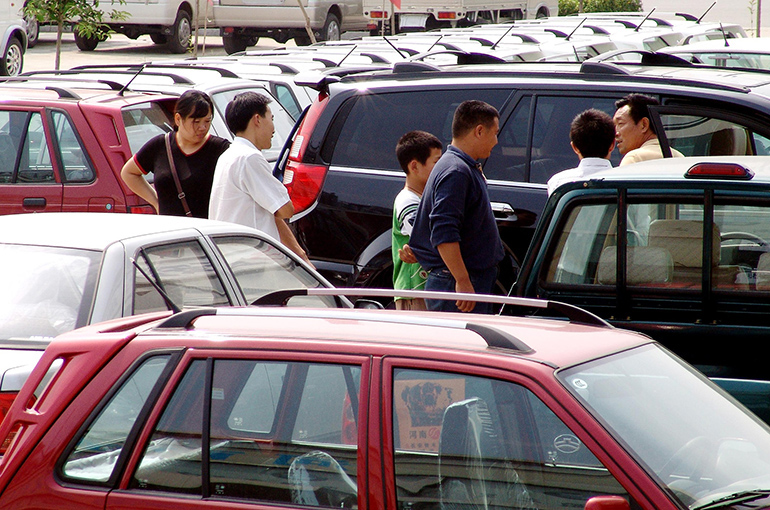 Most Used Car Dealers in China Are in the Red as Inventories Near All-Time High
Most Used Car Dealers in China Are in the Red as Inventories Near All-Time High(Yicai Global) July 11 -- More than 90 percent of secondhand car dealers in China are losing money as their inventories approach record high levels despite a modest sales pickup in the first five months of the year.
Ninety-two percent of used car vendors reported losses in recent years and face severe challenges of development and survival, according to a survey by the China Automobile Dealers Association.
Some 7.2 million used vehicles changed hands in the five months ended May 31, a 17.3 percent jump from a low comparative base a year earlier when Covid-19 measures were still in effect, CADA data showed.
Tesla kicked off intense price competition in the Chinese auto market, the world’s largest, early this year in the face of weak demand for new energy vehicles. By the end of March, more than 40 brands had also cut prices or were offering purchase subsidies.
“The price war in the market for new cars has stoked the wait-and-see approach of potential used car buyers, with the whole industry faces the challenges of shrinking demand, supply shocks, and weakening expectations,” CADA Secretary-General Xiao Zhengsan said at the annual China Used Car Convention earlier this month.
A used car remained in a dealer's inventory for about 37 days on average in early 2022 and rose to nearly a record 57 days last month, according to Tian Tian, deputy secretary-general of the CADA.
“New model prices change every 15 days recently, which means about four price adjustments on average before a used car leaves a dealer's warehouse,” Tian pointed out. “The gross margin on used cars is about 8 percent, and assuming each price cut on new models leads to a decline of 2 basis points in a dealer’s gross margin, they are bound to lose money if a used car hasn't been bought following four price adjustments.”
For some models, the price war in the new auto market has led to a situation where the price of some models is even lower than for secondhand vehicles, leading to severe losses for many used car vendors, Tao Wenxin, general manager of a Qingdao-based dealer, told Yicai Global. Used car prices pretty much fell every month in the first half, Tao added.
Tesla’s price cuts resulted in severe losses for our firm, said Deng Feifei, GM at a Sichuan province-based secondhand dealer. Her business had around 20 used autos from the US electric vehicle maker in stock at the time of Tesla’s first price reduction, resulting in the value of each dropping by as much as CNY30,000 (USD4,166).
“Many secondhand dealers refuse to buy used NEVs because of the frequent price cuts as they don't want to take risks and would rather not earn money,” Deng said. If a used NEV remains in stock for a month, dealers must consider profitability over cash flow, she added.
Editors: Tang Shihua, Martin Kadiev